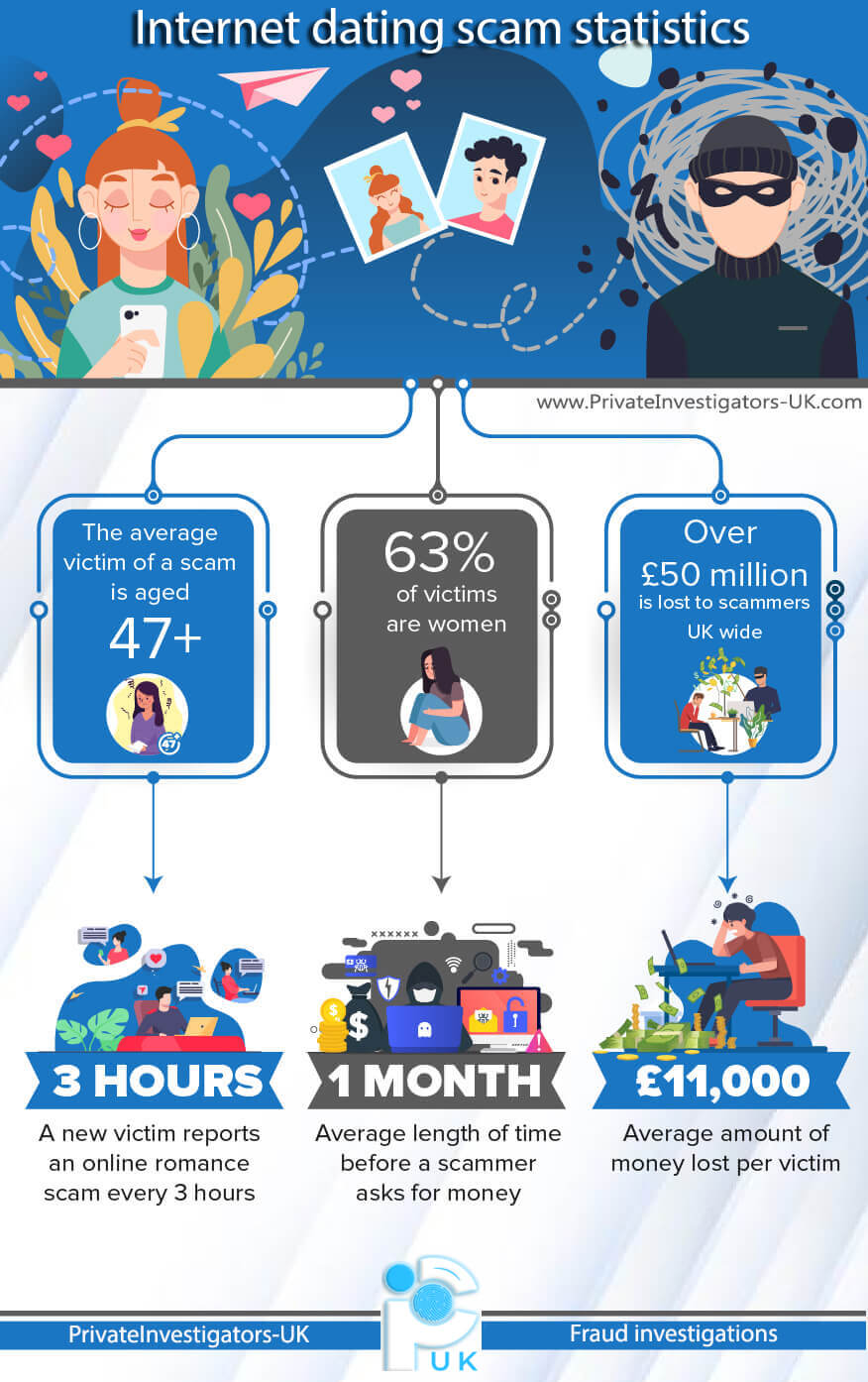Online Romance Scam Warning Signs
July 9, 2021 - Reading time: 5 minutes
Updated on: August 7, 2025
Scammers are drawn to dating websites and apps because they know that people visit them in order to find partners with whom they can create personal connections with. Scammers will try to take advantage of their trust with the ultimate goal of soliciting money. They will often take several months, or even years, to gradually build the trust of their victims before asking for money or gifts.
Action Fraud received 8,548 reports of romance fraud in 2024, with losses over £92 million. Scams surged 20% in early 2025, showing no signs of slowing down.
Many victims have lost hundreds or thousands of pounds to these online dating scammers, and it’s not always easy (or possible) to get any money back.
With this in mind, we have put together some of the common warning signs that you should know about to help you detect and avoid online dating scams. When you are talking to someone online, be on the lookout for these warning signs:
1. Rushing the relationship & love-bombing
Scammers often use intense declarations of love or insist you’re “meant to be” within days or weeks. This emotional rush attempts to bypass your rational guardrails. It's a classic “love-bombing” tactic.
2. Requests for money, gifts or favours under false pretences
Once trust is established, financial asks begin. They may claim medical bills, travel costs, or emergencies — anything to justify money from you. They escalate if refused and may end contact, warning you that you're “cold-hearted”.
3. Generic responses and inconsistent storytelling
You might notice vague replies, scripted messages, and responses that don’t follow your conversation. Inconsistencies in their timeline or background are telling signs.
4. Cancelling video calls with excuses
Repeatedly avoiding video calls with flimsy stories — broken cameras, faulty internet — is a red flag. Scammers often fake video calls using pre-recorded footage.
5. No verifiable digital footprint
Perform a reverse image search or Google their name. Genuine people often have social profiles or traces online. Total anonymity — or inconsistent online presence — is suspicious.
6. “Too good to be true” profiles
Scammers may claim shared hobbies, backgrounds, or interests they glean from your social accounts. If it feels tailored to reel you in, it probably is.
7. Newly created or quiet social profiles
Look for red flags like minimal activity, recent creation, and lack of engagement. Genuine profiles usually show history and social interaction.
8. Being asked to perform tasks or receive packages
Scammers might ask you to receive money, gift cards, parcels, or even forward items. You may unwittingly become involved in money laundering or other illicit activity — avoid it at all costs.
9. Poor grammar and unclear language
Frequent errors, unusual phrasing or poor English can indicate overseas scammers hiding behind fabricated stories.
10. Elaborate overseas backstories or emergencies
Scammers often say they work abroad, are in crisis, or require urgent financial help to travel or resolve a situation. These narratives are crafted to stop personal meetings while seeking money.
11. They encourage you to invest in cryptocurrency or suspicious schemes
If someone you’ve met online is encouraging you to invest in cryptocurrency or promising quick returns through any kind of online scheme, be very cautious. One of the most common and dangerous forms of romance fraud is what's known as a "pig butchering" scam. In this type of scam, the fraudster gains your trust over time and slowly convinces you to invest more and more money into what turns out to be a fake crypto trading platform or investment opportunity. These scams often look sophisticated and may even come with professional-looking websites, apps, and fake customer support.
If anyone you’re dating online starts offering to help you make money through cryptocurrency or investment trading, it’s a major red flag. Always treat investment advice from online strangers with extreme caution, especially if the relationship has developed quickly or the person avoids meeting in real life.
What to do if you suspect a scam
Romance scams aren’t just financially damaging — they can be emotionally devastating. If warning signs fit:
- Cease communication immediately.
- Tell a trusted friend or family for emotional support.
- Use reverse image search tools to verify profile photos.
- Contact your bank or card provider if you've sent money.
- Report the scam to Action Fraud (0300 123 2040) or Police Scotland.
Romance fraud is relentless and evolving — and it’s often under-reported. In 2024 alone, UK victims lost nearly £99.4 million, with older and more isolated individuals bearing the heaviest cost.
As a trusted UK detective agency, PrivateInvestigators-UK offers verification of romance claims and can assist in spotting fake personas. If you suspect a scam, feel free to get in touch and see how we can help.
You are reading the PrivateInvestigators-UK blog — home to the UK's leading detective agency. Learn more about us by visiting our homepage PrivateInvestigators-UK.com.
